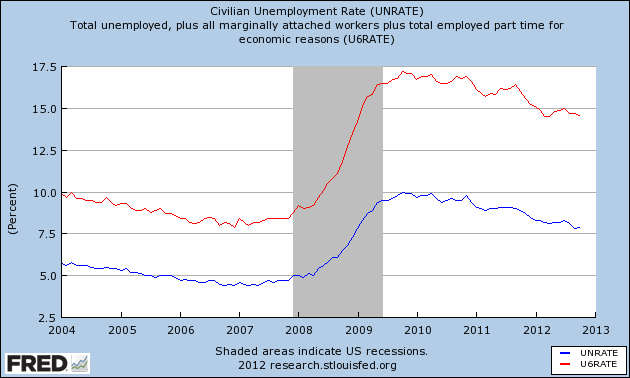The so-called fiscal cliff has been dominating the political economics coverage of late. It is perhaps an exciting story from a politicking perspective, but fairly boring in just about every other respect. The conventional wisdom in an economy still reeling from a recession like this one is to cancel all the scheduled cuts and tax increases, and make up the difference with borrowing. There is an argument in favor of getting the top marginal rate tax hike based upon how difficult it might be to do so in the future, but mostly people are talking about deficit reduction, which is a silly focus in the present climate.
While unemployment has come down, it is still way too high. Both the official unemployment rate and the U6 rate are slightly less than twice their pre-recession low:

Now is still the time to be crying out for fiscal and monetary stimulus, the latter probably the most plausible route in our current state of legislative dysfunction. Extended unemployment is still really awful for those forced to go through it. Full employment is still — as a practical matter in a market economy — the best way to improve the bargaining position of labor, which should allow labor to secure higher compensation and better treatment. And hell for those worried about students, there is no better way to help recent graduates than to bring the economy back to capacity and full employment.
While I too am going through a bit of unemployment fatigue (how much more can you say about it), it still remains true that it is probably the biggest issue going right now for poor and working people. That it has dropped off the radar as a policy concern is rather depressing.